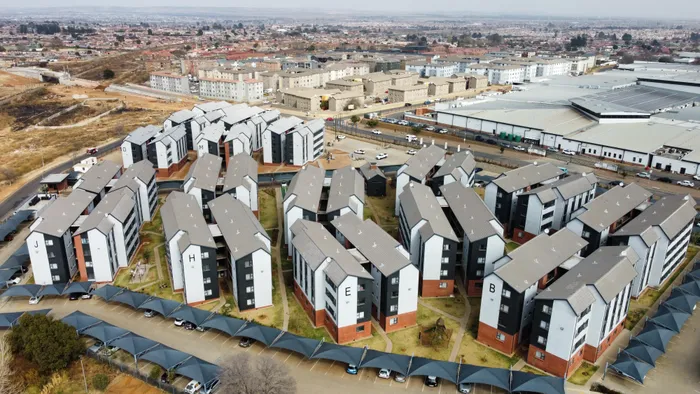The new face of homeownership: women as South Africa's leading property buyers

Women aged between 28 and 40 are emerging as the leading buyers in Soweto's Lifestyle Estates.
Image: Supplied
Women aged between 28 and 40 emerge as the leading buyers in Soweto due to the recent boom in lifestyle developments.
“Orlando Towers Estate has been a hit with young families-especially single mothers-who value the estate’s high-tech security and peaceful environment,” says Tim Akinnusi, CEO of MortgageMarket.
“It’s also ideal for those who want to stay close to their families, with easy access to visit parents nearby.”
He added that their mission has always been to bring quality living to where people already live. “These lifestyle apartments are transforming the face of Soweto, and our goal is to replicate this model in other townships across the country.”
These new estates that typically feature one to three-bedroom apartments offer amenities usually associated with northern suburbs, including contemporary finishes, high-tech security, clubhouses, braai areas, fibre connectivity, artificial soccer pitches, children’s play zones, and more.
Many units also feature gas geysers and stoves, offering relief from load shedding disruptions.
Orlando Towers Estate, located in Orlando, has already welcomed its first residents and is now launching Phase Two due to high demand. Prices for two-bedroom, one-bathroom apartments start from R710 537.
According to MortgageMarket, the financing partner for the development, 56 percent of the buyers are women, predominantly from suburbs such as Pimville, Diepkloof, and Protea Glen.
Most buyers were described as upwardly mobile professionals who included skilled workers, people in management, junior and supervisory roles. Common professions include managers of various kinds, teachers, nurses, administrators, and consultants, with employment spanning industries such as manufacturing, finance, education, healthcare and civil service.
MortgageMarket said it also provides buyers with easy access to home financing and pre-approval tools, making it easier for first-time buyers and young families to own property.
A new creche is said to be in development and will be located within the estate, providing added convenience for families with young children.
Nearby in Jabulani, the Jabulani Junction Phase 2 development offers similar lifestyle amenities, with two-bedroom apartments starting from R659 900.
On the broader impact of township lifestyle estates, Akinnusi believes these developments are playing a transformative role in the country’s housing sector: “These estates bring value to the surrounding property market, increasing the worth of nearby homes. Property remains one of the best long-term investments, and we see these estates as both a place to live and a vehicle for young people and families to invest in their future.
"Our ambition is to build as many as we can-it’s our way of contributing to the country’s development.”
According to the latest data from Lightstone, a provider of comprehensive data, analytics and systems on property, automotive and business assets, South African women are increasingly asserting their financial independence and making significant strides in both homeownership and vehicle ownership.
The company said while property ownership has historically been male-dominated, the data now shows that women are increasingly becoming homeowners and property investors-and now outnumber men.
“We’re seeing a clear and steady shift in ownership patterns as more South African women take on property purchases, reflecting both growing financial independence and confidence in property as a long-term investment. It’s an encouraging sign of transformation in the real estate sector,” says Hayley Ivins-Downes, managing executive of Real Estate at Lightstone.
It said the proportion of homes owned by women as sole buyers-as opposed to men or mixed couple buyers, has increased from 30% in 2014 to 39% in 2025, while mixed couple ownership declined from 39% to 30%.
“Single female buyers” refers to women who are the sole registered owners of the property, regardless of their marital or relationship status.
As a result, properties owned solely by women or jointly by women and men account for 69% of all ownership, while properties owned solely by men remain static at 31%.
If owners of subsidised properties are excluded, single women buyers favoured secure living, with 12% opting for Estate Freehold, 4% going for Estate Sectional Schemes and 37% buying Sectional Scheme properties. Just over 47% of single women buyers bought Freehold properties.
On average, women buyers paid nearly R2.2 million for Estate Freehold properties and slightly over R1.5 million for Estate Sectional Scheme properties.
The proportion of single women buyers increases with age. At 30, 50% of buyers were women, and this reaches 73% at 74 years of age, with a preference for sectional title properties.
Independent Media Property
Related Topics: